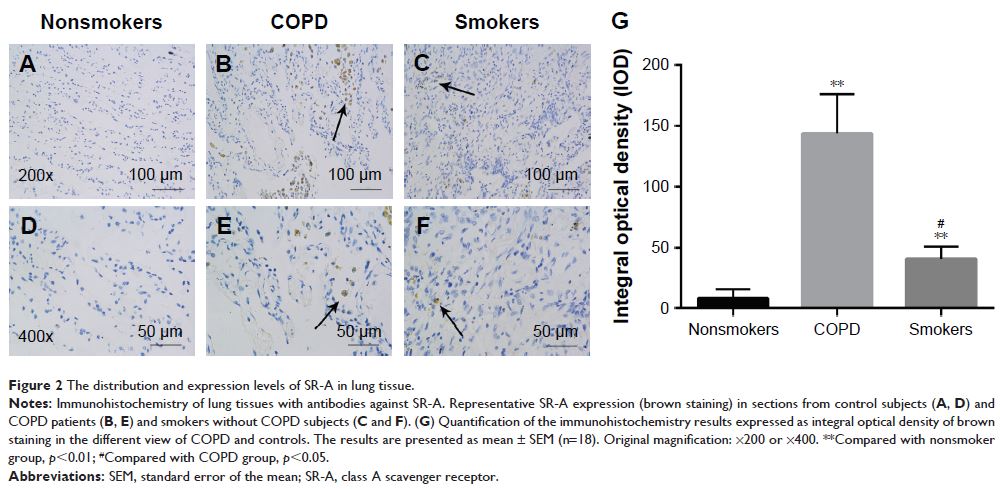108985
论文已发表
注册即可获取德孚的最新动态
IF 收录期刊
- 3.4 Breast Cancer (Dove Med Press)
- 3.2 Clin Epidemiol
- 2.6 Cancer Manag Res
- 2.9 Infect Drug Resist
- 3.7 Clin Interv Aging
- 5.1 Drug Des Dev Ther
- 3.1 Int J Chronic Obstr
- 6.6 Int J Nanomed
- 2.6 Int J Women's Health
- 2.9 Neuropsych Dis Treat
- 2.8 OncoTargets Ther
- 2.0 Patient Prefer Adher
- 2.2 Ther Clin Risk Manag
- 2.5 J Pain Res
- 3.0 Diabet Metab Synd Ob
- 3.2 Psychol Res Behav Ma
- 3.4 Nat Sci Sleep
- 1.8 Pharmgenomics Pers Med
- 2.0 Risk Manag Healthc Policy
- 4.1 J Inflamm Res
- 2.0 Int J Gen Med
- 3.4 J Hepatocell Carcinoma
- 3.0 J Asthma Allergy
- 2.2 Clin Cosmet Investig Dermatol
- 2.4 J Multidiscip Healthc

利用 A 类清道夫受体对炎症的重要调节
Authors Xie L, Li Q, Dong R, Zhao K, Feng Y, Bao Z, Zhou M
Received 5 October 2017
Accepted for publication 24 February 2018
Published 13 April 2018 Volume 2018:13 Pages 1145—1155
DOI https://doi.org/10.2147/COPD.S153326
Checked for plagiarism Yes
Review by Single-blind
Peer reviewers approved by Dr Charles Downs
Peer reviewer comments 3
Editor who approved publication: Dr Chunxue Bai
Background: Inflammation is an important cause of COPD. Alveolar macrophages
are the major innate immune cells that have an important role in COPD pathology.
Class A scavenger receptor (SR-A) is a pattern recognition receptor expressed
on macrophages. This study investigates the role of SR-A in COPD progression
via regulation of inflammation.
Patients and methods: SR-A expression in COPD patients and control subjects
(smokers and nonsmokers without COPD) was measured by immunohistochemistry,
immunofluorescence, and real-time PCR. The cytokine levels in BAL were measured
by enzyme-linked immunosorbent assay. To further prove our hypothesis, we
treated RAW264.7 cells that overexpress SR-A with lipopolysaccharides,
poly(I:C), cigarette smoke extract, and H1N1 influenza separated from patients
for 24 h and examined the levels of inflammatory cytokines.
Results: In both groups, COPD and smokers without COPD,
SR-A expression level was upregulated in alveolar macrophages. SR-A mRNA level
was positively correlated with inflammatory cytokines and negatively correlated
with FEV1% predicted in COPD patients. In RAW-SR-A cells,
level of inflammatory cytokines was significantly higher when compared with
control ones.
Conclusion: SR-A could increase inflammation stimulated by
cigarette smoke extracts, bacteria, and virus, leading to long-term
inflammation in COPD, and thus might be used as a new therapeutic target for
COPD treatment.
Keywords: chronic
obstructive pulmonary disease, class A scavenger receptor, inflammation,
cigarette smoke extract, lipopolysaccharides, poly(I:C), H1N1 influenza
